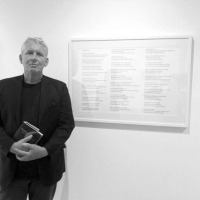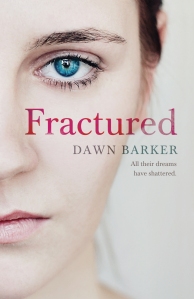 I thought I’d get in the Christmas spirit and hold a little competition …
I thought I’d get in the Christmas spirit and hold a little competition …
So … I have a prize pack on offer of 10 BOOKS from some of the fabulous writers who’ve shared their stories on Wild Colonial Girl over the past year. The winning Christmas book-hamper features SIGNED copies of:
- Simmone Howell – Girl Defective
- Walter Mason – Destination Cambodia
- Jon Bauer – Rocks in the Belly
- Jenn J McLeod – House for all Seasons
- Jessie Cole – Darkness On the Edge of Town
- Annabel Smith – Whisky, Charlie, Foxtrot
- Dawn Barker – Fractured
- Angela Meyer (editor) – The Great Unknown collection
- Jo Case – Boomer and Me
- Wendy James – The Mistake
TO WIN?
My novel, just_a_girl, has just been listed as an e-book at Amazon.com.au and it’s looking a wee bit lonely.
Simply write a review (2 words, 2 sentences, 2 paras, a thesis – I don’t mind) and put it on Amazon here by 31 December (gives you a bit of time to do some holiday reading).
I’ll be choosing the winner (most unique response) on 1 January, and will announce it on the blog early in the New Year when I’ve recovered from staying up to 9pm to watch the fireworks (it’s never the same after you have kids).
I’ll also feature some of the reviews I love on Wild Colonial Girl next year.
THE BOOK-HAMPER: here’s a spotlight on the books you might win
Simmone Howell, Girl Defective
 “It was just Dad and me and Gully living in the flat above the shop in Blessington Street, St Kilda. We, the Martin family, were like inverse superheroes, marked by our defects. Dad was addicted to beer and bootlegs. Gully had ‘social difficulties’ that manifested in his wearing a pig-snout mask 24/7. I was surface clean but underneath a weird hormonal stew was simmering. My defects weren’t the kind you could see just from looking. Later I would decide they were symptoms of Nancy.”
“It was just Dad and me and Gully living in the flat above the shop in Blessington Street, St Kilda. We, the Martin family, were like inverse superheroes, marked by our defects. Dad was addicted to beer and bootlegs. Gully had ‘social difficulties’ that manifested in his wearing a pig-snout mask 24/7. I was surface clean but underneath a weird hormonal stew was simmering. My defects weren’t the kind you could see just from looking. Later I would decide they were symptoms of Nancy.”
This is the story of a wild girl and a ghost girl; a boy who knew nothing and a boy who thought he knew everything. And it’s about life and death and grief and romance.
All the good stuff.
From the award-winning author of Notes from the Teenage Underground, and Everything Beautiful.
Walter Mason, Destination Cambodia
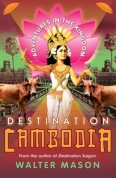 The ancient and mysterious ruins of Cambodia have long captured the imagination of visitors, more so now than ever before. In Destination Cambodia, Walter Mason charts an affectionate, intimate and deeply personal look at a Kingdom that has drawn him back again and again since his youth.
The ancient and mysterious ruins of Cambodia have long captured the imagination of visitors, more so now than ever before. In Destination Cambodia, Walter Mason charts an affectionate, intimate and deeply personal look at a Kingdom that has drawn him back again and again since his youth.
Whether he’s watching young monks recite the Buddha’s life stories, visiting shamans and fortune tellers, or discovering the darker alleys of Phnom Penh with a romantic novelist and a world-weary street hustler, Walter takes the reader straight to the heart of this famously unknowable country. As heat, dust and weariness take their toll, he remains alive to the charms, and even seductions, of a place that was once a byword for misery and human suffering.
Destination Cambodia takes us on a joyful and constantly fascinating literary journey in which Cambodia is vibrant and its people excited about the future while never denying their haunted past.
Jon Bauer, Rocks in the Belly
 How far can you push a child?
How far can you push a child?
Rocks in the Belly follows a precocious eight-year-old boy and the volatile adult he becomes. During childhood his mother fosters boys despite the jealous turmoil it arouses in her son. Jealousy that reaches unmanageable proportions when she fosters Robert, and triggers an event that profoundly changes everyone. Especially Robert.
At twenty-eight the son returns to face his mother. He hasn’t forgiven her for what happened. But now she’s the dependent one and he the dominant.
Jenn J McLeod, House for All Seasons
 Bequeathed a century-old house, four estranged friends return to their home town, Calingarry Crossing, where each must stay for a season to fulfil the wishes of their beloved benefactor, Gypsy. Here they finally face the consequences of the tragic accident that occurred twenty years ago and changed their lives forever.
Bequeathed a century-old house, four estranged friends return to their home town, Calingarry Crossing, where each must stay for a season to fulfil the wishes of their beloved benefactor, Gypsy. Here they finally face the consequences of the tragic accident that occurred twenty years ago and changed their lives forever.
Sara, a breast cancer survivor afraid to fall in love;
Poppy, an ambitious journo craving her father’s approval;
Amber, a spoilt socialite looking for some purpose to life.
Jessie Cole, Darkness On the Edge of Town
 My dad, he collects broken things … Where other people see junk he sees potential … My dad collects broken people too …
My dad, he collects broken things … Where other people see junk he sees potential … My dad collects broken people too …
Vincent is nearly forty years old, with little to show for his life except his precious sixteen-year-old daughter, Gemma: sensitive, insightful and wise beyond her years.
When a stranger crashes her car outside Vincent and Gemma′s bush home, their lives take a dramatic turn. In an effort to help the stranded woman, father and daughter are drawn into a world of unexpected and life-changing consequences.
DARKNESS ON THE EDGE OF TOWN is a haunting tale that beguiles the reader with its deceptively simple prose, its gripping and unrelenting tensions, and its disturbing yet tender observations.
Annabel Smith, Whisky, Charlie, Foxtrot
 Whisky and Charlie are identical twins. But everything about them is poles apart. It’s got so bad that Charlie can’t even bear to talk to his brother anymore – until a freak accident steals Whisky from his family, and Charlie has to face the fact he may never speak to his brother again.
Whisky and Charlie are identical twins. But everything about them is poles apart. It’s got so bad that Charlie can’t even bear to talk to his brother anymore – until a freak accident steals Whisky from his family, and Charlie has to face the fact he may never speak to his brother again.
‘It is rare to encounter fiction that will appeal to adults and Young Adults alike that so intelligently explores the downright messiness of family relationships through adult characters; rarer still to find an author who writes of traumatic injury and the looming shadow of death with such verve and sensitivity.’ Australian Book Review
‘… by far the enduring sense of this novel is of having been in the hands of a storyteller with more than just a good story, one with something to say about how to live, and the energy and pluck to say it.’ The Australian
Dawn Barker, Fractured
 An unforgettable novel that brings to life a new mother’s worst fears.
An unforgettable novel that brings to life a new mother’s worst fears.
Tony is worried. His wife, Anna, isn’t coping with their newborn. Anna had wanted a child so badly and, when Jack was born, they were both so happy. They’d come home from the hospital a family. Was it really only six weeks ago?
But Anna hasn’t been herself since. One moment she’s crying, the next she seems almost too positive. It must be normal with a baby, Tony thought; she’s just adjusting. He had been busy at work. It would sort itself out. But now Anna and Jack are missing. And Tony realises that something is really wrong…
What happens to this family will break your heart and leave you breathless.
Angela Meyer (editor), The Great Unknown
 The imaginative stories in The Great Unknown take inspiration from vintage American TV programs such as The Twilight Zone and The Outer Limits—and their contemporaries and successors—paying tribute to the cultural influence these shows have had on lives ‘down under’.
The imaginative stories in The Great Unknown take inspiration from vintage American TV programs such as The Twilight Zone and The Outer Limits—and their contemporaries and successors—paying tribute to the cultural influence these shows have had on lives ‘down under’.
Episodes of these programs were often metaphors for equality, justice, the nuclear threat and other issues, while being memorably spooky and fun. Editor Angela Meyer wanted to see what themes might seep into the writing of contemporary Australian writers working with the spooky, the strange, the eerie, the fantastic, the speculative, the macabre and the absurd.
Jo Case, Boomer and Me: a memoir of motherhood, and Asperger’s
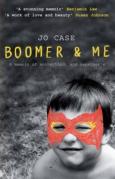 Leo is having trouble fitting in. Whether it’s pulling his pants down in the schoolyard or compulsively saluting Mazdas because the company sponsors his football team, Leo can never seem to say or do the right thing. And Jo is struggling to help him find his place as she juggles work and the ordinary demands of motherhood. But her beloved only child has been reading novels since he started school, amazes strangers with his encyclopaedic knowledge of sport statistics, and displays a wit sharp beyond his years – could he be gifted? In fact, it turns out Leo has Asperger’s Syndrome.
Leo is having trouble fitting in. Whether it’s pulling his pants down in the schoolyard or compulsively saluting Mazdas because the company sponsors his football team, Leo can never seem to say or do the right thing. And Jo is struggling to help him find his place as she juggles work and the ordinary demands of motherhood. But her beloved only child has been reading novels since he started school, amazes strangers with his encyclopaedic knowledge of sport statistics, and displays a wit sharp beyond his years – could he be gifted? In fact, it turns out Leo has Asperger’s Syndrome.
This is the bittersweet, blackly funny story of a boy and his very twenty-first-century family, and why being different isn’t a disability – it just takes a bit of getting used to.
Wendy James, The Mistake
 The past isn’t dead. It isn’t even past …
The past isn’t dead. It isn’t even past …
Jodie Garrow is a teenager from the wrong side of the tracks when she falls pregnant. Scared, alone and desperate to make something of her life, she makes the decision to adopt out her baby – and tells nobody.
Twenty-five years on, Jodie has built a whole new life and a whole new family. But when a chance meeting brings the illegal adoption to the notice of the authorities, Jodie becomes embroiled in a nationwide police investigation for the missing child, and the centre of a media witch hunt.
Posted in
Competitions + Giveaways,
Debut authors,
just_a_girl,
My novel,
Novels,
Uncategorized,
Writers + Writing and tagged
angela meyer,
annabel smith,
australian women writers,
boomer and me,
christmas book hamper,
darkness on the edge of town,
dawn barker,
debut authors,
destination cambodia,
fractured,
girl defective,
house for all seasons,
jenn j mcleod,
jessie cole,
jo case,
jon bauer,
just_a_girl competition,
rocks in the belly,
simmone howell,
the great unknown,
the mistake,
walter mason,
wendy james,
whisky charlie foxtrot

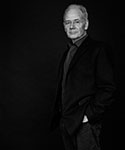




 I thought I’d get in the Christmas spirit and hold a little competition …
I thought I’d get in the Christmas spirit and hold a little competition … “It was just Dad and me and Gully living in the flat above the shop in Blessington Street, St Kilda. We, the Martin family, were like inverse superheroes, marked by our defects. Dad was addicted to beer and bootlegs. Gully had ‘social difficulties’ that manifested in his wearing a pig-snout mask 24/7. I was surface clean but underneath a weird hormonal stew was simmering. My defects weren’t the kind you could see just from looking. Later I would decide they were symptoms of Nancy.”
“It was just Dad and me and Gully living in the flat above the shop in Blessington Street, St Kilda. We, the Martin family, were like inverse superheroes, marked by our defects. Dad was addicted to beer and bootlegs. Gully had ‘social difficulties’ that manifested in his wearing a pig-snout mask 24/7. I was surface clean but underneath a weird hormonal stew was simmering. My defects weren’t the kind you could see just from looking. Later I would decide they were symptoms of Nancy.” The ancient and mysterious ruins of Cambodia have long captured the imagination of visitors, more so now than ever before. In Destination Cambodia, Walter Mason charts an affectionate, intimate and deeply personal look at a Kingdom that has drawn him back again and again since his youth.
The ancient and mysterious ruins of Cambodia have long captured the imagination of visitors, more so now than ever before. In Destination Cambodia, Walter Mason charts an affectionate, intimate and deeply personal look at a Kingdom that has drawn him back again and again since his youth. How far can you push a child?
How far can you push a child? Bequeathed a century-old house, four estranged friends return to their home town, Calingarry Crossing, where each must stay for a season to fulfil the wishes of their beloved benefactor, Gypsy. Here they finally face the consequences of the tragic accident that occurred twenty years ago and changed their lives forever.
Bequeathed a century-old house, four estranged friends return to their home town, Calingarry Crossing, where each must stay for a season to fulfil the wishes of their beloved benefactor, Gypsy. Here they finally face the consequences of the tragic accident that occurred twenty years ago and changed their lives forever. My dad, he collects broken things … Where other people see junk he sees potential … My dad collects broken people too …
My dad, he collects broken things … Where other people see junk he sees potential … My dad collects broken people too … Whisky and Charlie are identical twins. But everything about them is poles apart. It’s got so bad that Charlie can’t even bear to talk to his brother anymore – until a freak accident steals Whisky from his family, and Charlie has to face the fact he may never speak to his brother again.
Whisky and Charlie are identical twins. But everything about them is poles apart. It’s got so bad that Charlie can’t even bear to talk to his brother anymore – until a freak accident steals Whisky from his family, and Charlie has to face the fact he may never speak to his brother again. An unforgettable novel that brings to life a new mother’s worst fears.
An unforgettable novel that brings to life a new mother’s worst fears. The imaginative stories in The Great Unknown take inspiration from vintage American TV programs such as The Twilight Zone and The Outer Limits—and their contemporaries and successors—paying tribute to the cultural influence these shows have had on lives ‘down under’.
The imaginative stories in The Great Unknown take inspiration from vintage American TV programs such as The Twilight Zone and The Outer Limits—and their contemporaries and successors—paying tribute to the cultural influence these shows have had on lives ‘down under’. Leo is having trouble fitting in. Whether it’s pulling his pants down in the schoolyard or compulsively saluting Mazdas because the company sponsors his football team, Leo can never seem to say or do the right thing. And Jo is struggling to help him find his place as she juggles work and the ordinary demands of motherhood. But her beloved only child has been reading novels since he started school, amazes strangers with his encyclopaedic knowledge of sport statistics, and displays a wit sharp beyond his years – could he be gifted? In fact, it turns out Leo has Asperger’s Syndrome.
Leo is having trouble fitting in. Whether it’s pulling his pants down in the schoolyard or compulsively saluting Mazdas because the company sponsors his football team, Leo can never seem to say or do the right thing. And Jo is struggling to help him find his place as she juggles work and the ordinary demands of motherhood. But her beloved only child has been reading novels since he started school, amazes strangers with his encyclopaedic knowledge of sport statistics, and displays a wit sharp beyond his years – could he be gifted? In fact, it turns out Leo has Asperger’s Syndrome. The past isn’t dead. It isn’t even past …
The past isn’t dead. It isn’t even past …
